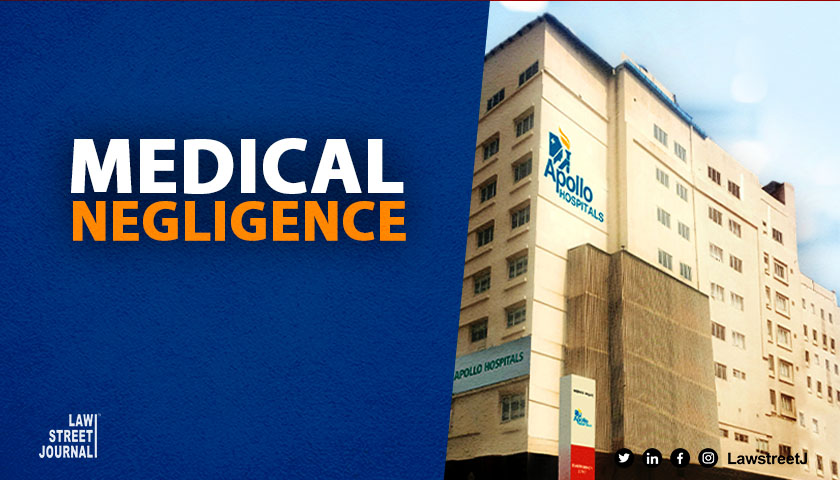NEW DELHI: The Supreme Court has upheld the National Consumer Disputes Redressal Commission's decision, dismissing a complaint against a private hospital here for negligence in post operative care, resulting into death of a patient due to cardiac arrest.
A bench of Justices A S Bopanna and Prashant Kumar Mishra said there is no evidence put forth by the complainant to establish that heart attack suffered by the patient had any connection with the operation in question or that it was on account of negligent post operative care.
Appellant Kalyani Ranjan had alleged negligence by the doctors at Indraprastha Apollo Hospital here following a major neurosurgery, resulting into death of her 37-year-old husband Sankar Rajan on November 06, 1998 due to heart attack.
The deceased was operated upon October 29, 1998. He was shifted to a private room within hours. As he suffered unbearable neck pain, doctors were contacted but he suffered heat attack at about 11 pm. He was declared brain dead on October 31. He remained on life support till his death on November 6, 1998.
The complainant wife contended after such major surgery, the deceased should have been shifted to the Intensive Care Unit. She said the deceased died due to cardiac arrest, though he had no cardiac problems.
She cited the principle of 'Res Ipsa Locutor' (mere accident sufficient to imply negligence) to attribute negligence to the hospital and doctors.
The bench, however, the patient did not have any history of diabetes or hypertension or any cardiac problem, so it was difficult for treating doctors including the duty doctor or the hospital to assume that the patient may suffer
cardiac arrest. Moreover, the patient had also not complained of pain in any other part of the body except neck region, the bench said.
"In so far as the applicability of principles of Res Ipsa Locutor, in the fact and circumstances of the case, it is to bear in mind that the principles get attracted where circumstances strongly suggest partaking in negligent behaviour by the person against whom an accusation of negligence is made. For applying the principles of Res Ipsa Locutor, it is necessary that a Res is present to establish the allegation of negligence. Strong incriminating circumstantial or documentary evidence is required for application of the doctrine," the bench explained.
The court also noted during the months of September to November 1998, of 166 neurosurgeries, only 68 patients were sent to the ICU from the recovery room and the rest were sent back to their wards.
















